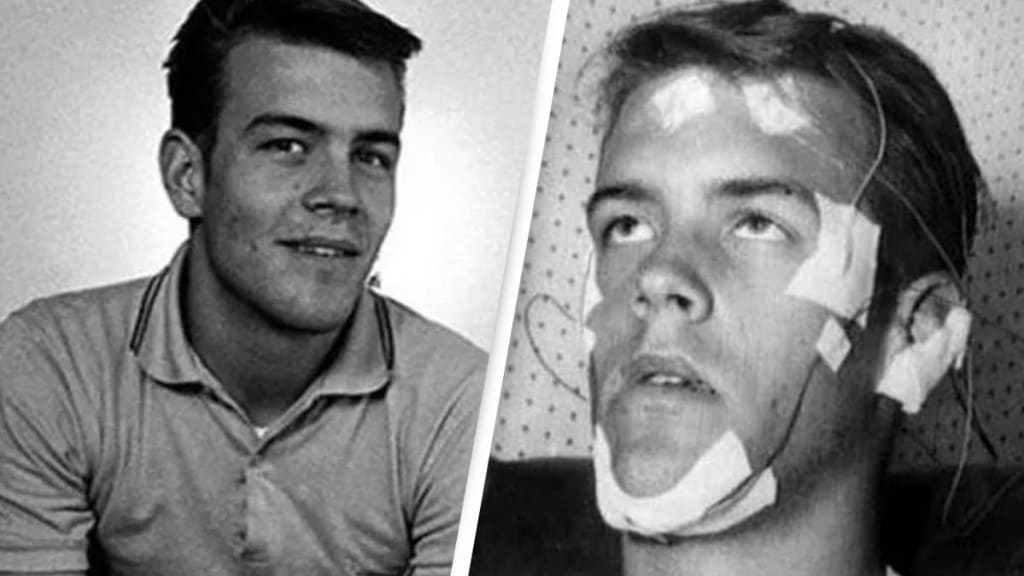
The claim that a young guy managed to stay awake for more than 11 days in January 1964 and felt quite normal at the end of this period is often referred to as the "Randy Gardner Sleep Experiment." Randy Gardner, a high school student from San Diego, California, attempted to break the record for the longest period without sleep as part of a science fair project. This event gained significant media attention and was included in the Guinness Book of Records at that time.
During the experiment, Gardner was closely monitored by medical professionals and researchers to assess the effects of sleep deprivation on his physical and mental well-being. As the experiment progressed, Gardner did experience significant cognitive decline, mood swings, and lapses in concentration, which is consistent with what is typically observed in individuals who go without sleep for extended periods.
It's important to note that this experiment was conducted under controlled conditions with medical supervision, and Randy Gardner recovered fully after a few nights of proper sleep. However, attempting to replicate such a feat without professional guidance and monitoring can be extremely dangerous and is not recommended.
The consequences of prolonged sleep deprivation can be severe and include impaired cognitive function, hallucinations, psychosis, and physical health issues. Regular and sufficient sleep is crucial for overall well-being and should not be compromised for any reason.
The Randy Gardner Sleep Experiment provided valuable insights into the effects of sleep deprivation on cognitive abilities and human brain function. Randy Gardner and his friend embarked on this experiment in December of 1963 with the goal of breaking the previous record for the longest period without sleep, which was set by a DJ who worked for 260 hours straight (almost 11 days).
During the experiment, Gardner faced challenges in keeping himself occupied, especially during the night when most activities are not available. They initially planned to study the influence of insomnia on various people's abilities, but due to a lack of proper equipment, they decided to focus on understanding how sleep deprivation specifically affects cognitive abilities and basketball skills.
Throughout the experiment, medical professionals and researchers monitored Gardner closely to observe the changes in his cognitive function, mood, and physical well-being. As the experiment progressed, Gardner experienced a decline in cognitive abilities, mood swings, and difficulties in performing basketball tasks. These observations provided valuable information about the importance of sleep for cognitive performance, mood regulation, and physical coordination.
The experiment was indeed groundbreaking and offered new insights into the consequences of sleep deprivation on the human brain and body. However, it's crucial to remember that such extreme sleep deprivation is hazardous and not advisable. Adequate and regular sleep is essential for optimal health and functioning. The experiment was a unique case that helped researchers understand sleep's significance, but it should not be used as a model for promoting sleep deprivation in any way.It's evident that the experiment was carefully monitored and documented, involving not only Randy and his two friends but also William Dement from Stanford University, who was an expert in sleep research.
During the first two days, Randy managed to stay active, engaged in sports, and felt pleasant excitement. His friends diligently recorded any changes in his body and mental state in the diary. However, by the third day, even his friends struggled to stay awake, as one of them dozed off while making notes. This highlights the difficulty of maintaining wakefulness for such an extended duration.
As the experiment progressed, they observed a decline in Randy's cognitive and sensory abilities after three days, with symptoms like nausea. However, they discovered that certain sensory stimulations, like the smell of citrus fruit, could help alleviate the unpleasant sensations.
The friends took shifts to ensure that Randy was not left alone and bored, as any moment of drowsiness could lead to him falling asleep instantly. They engaged in various activities, such as playing basketball for hours or going bowling, to keep him occupied and awake.
The experiment's night hours were particularly challenging, as it became harder to find ways to keep Randy awake. Despite the difficulties, Randy managed to stay awake for an impressive week without sleep, which is a remarkable feat.
It's essential to remember that this experiment was conducted under highly controlled conditions with medical supervision. It was a unique case study that provided valuable insights into the effects of sleep deprivation, but attempting such extreme sleep deprivation without professional guidance can be extremely dangerous and harmful. Adequate and regular sleep remains crucial for overall well-being.
The Sleep Experiment further illustrate the complexity of the human response to sleep deprivation. Randy's performance in basketball and his ability to communicate clearly during the experiment may have given the impression that he was functioning well. However, it's crucial to remember that these abilities can be influenced by various factors, and cognitive decline can still occur despite these apparent successes.
During the experiment, other scientists and researchers came to observe Randy's progress, turning him into a celebrity of sorts. This newfound attention and the external stimulus from the visitors may have contributed to his ability to stay awake for an extended period. However, it's essential to recognize that the experiment's context and his celebrity status might have been temporarily boosting his motivation and energy levels.
When researchers tested Randy's intellectual abilities with math exercises, he demonstrated poor results, including moments of forgetfulness and confusion. This highlights the adverse effects of sleep deprivation on cognitive functions such as memory, attention, and problem-solving.
Additionally, brain scans performed on Randy recorded his brain activity, providing valuable insights into how the brain responds to prolonged sleep deprivation. The experiment allowed researchers to gather important data about the brain's functioning under extreme sleep deprivation conditions.
As the experiment neared its end, Randy was on the verge of breaking the previous record of staying awake for almost 11 days. However, it's crucial to remember that such a feat is not healthy or recommended. The experiment served as a unique case study to understand the effects of sleep deprivation on various aspects of human functioning, but it should not be used as a model to promote sleep deprivation in any way.
After the experiment, Randy would have likely needed a significant amount of rest and recovery to allow his body and brain to return to a healthy state. Adequate and regular sleep is essential for optimal cognitive performance, physical health, and overall well-being.
The additional information about what happened after Randy's record-setting sleep deprivation experiment is fascinating and sheds more light on the complexities of the brain's response to extreme sleep deprivation.
After staying awake for 264 hours and setting a new record, Randy was taken to a special hospital for further observation. Researchers attached electrodes to his head to monitor his brain activity during sleep. Remarkably, when Randy finally went to sleep, he fell into a deep slumber for 15 hours. During this period of sleep, the brain showed a fascinating phenomenon: different parts of the brain seemed to take turns sleeping while others remained awake and active.
For example, while Randy played basketball, the analytical parts of his brain appeared to "nap," explaining why his cognitive abilities were off during the physical activity. Similarly, when he was solving math problems, the part of the brain responsible for quick reactions seemed to turn off.
This unique observation suggested that during the prolonged sleep deprivation period, the brain found a way to ensure that certain critical functions were still maintained, even if other areas temporarily "napped" to rest and recover. This adaptive mechanism allowed Randy to continue functioning in some aspects of his life without major negative consequences, despite his extreme sleep deprivation.
However, it's important to note that this does not mean sleep deprivation is harmless or recommended. While Randy's brain showed remarkable adaptability during the experiment, it does not change the fact that sleep deprivation can have severe and detrimental effects on overall cognitive and physical health. Regular, sufficient, and uninterrupted sleep remains essential for optimal brain function and well-being. Randy's experiment was a unique case study that offered valuable insights into the brain's response to extreme conditions, but it should not be taken as a justification for sleep deprivation in any way.
Randy Gardner's sleep experiment sheds light on the complexity of the brain's response to sleep deprivation. After Randy set the new record of staying awake for 264 hours, he finally went to sleep in a special hospital where researchers monitored his brain activity using attached electrodes.
During his sleep, which lasted 15 hours, the researchers observed a unique pattern in his brain activity. Despite being asleep, different parts of Randy's brain seemed to nap or alternate between sleeping and waking states. For instance, while he played basketball, the analytical abilities in his brain were turned off, and when he engaged in solving math problems, the part of the brain responsible for reactions was turned off. This indicates that different regions of his brain were resting at different times, suggesting a compensatory mechanism to cope with the prolonged sleep deprivation.
The brain's ability to alternate between periods of activity and rest in different regions could be a way to manage the strain caused by sleep deprivation. However, it's essential to note that this unique response does not diminish the potential dangers and negative consequences of prolonged sleep deprivation.
The fact that Randy appeared to recover well after his long sleep is a testament to the body's resilience, but it doesn't mean that sleep deprivation is harmless. Sleep is essential for various vital functions, including memory consolidation, immune system regulation, and emotional well-being. Chronic sleep deprivation can lead to serious health problems and impair overall cognitive functioning in the long term.
While the experiment offered valuable insights into the brain's ability to cope with extreme conditions, it is crucial to remember that regular and sufficient sleep is essential for overall health and well-being. The experiment was a highly controlled and unique case study and should not be interpreted as a justification for depriving oneself of sleep. Adequate sleep remains fundamental for optimal physical and cognitive functioning.
About the Creator
Rohan
I am young and enthusiastic writer, prefer to get more encouragement from fellow audience and colleagues. Please do support guys.. Thanks in advance.. Thanks for all the love & encouragement .. cheers
Enjoyed the story? Support the Creator.
Subscribe for free to receive all their stories in your feed. You could also pledge your support or give them a one-off tip, letting them know you appreciate their work.






Comments (1)
There were repetitive sentences and two whole paragraphs appeared to be repeated. Interesting info on sleep deprivation experiment!!!😎♥️